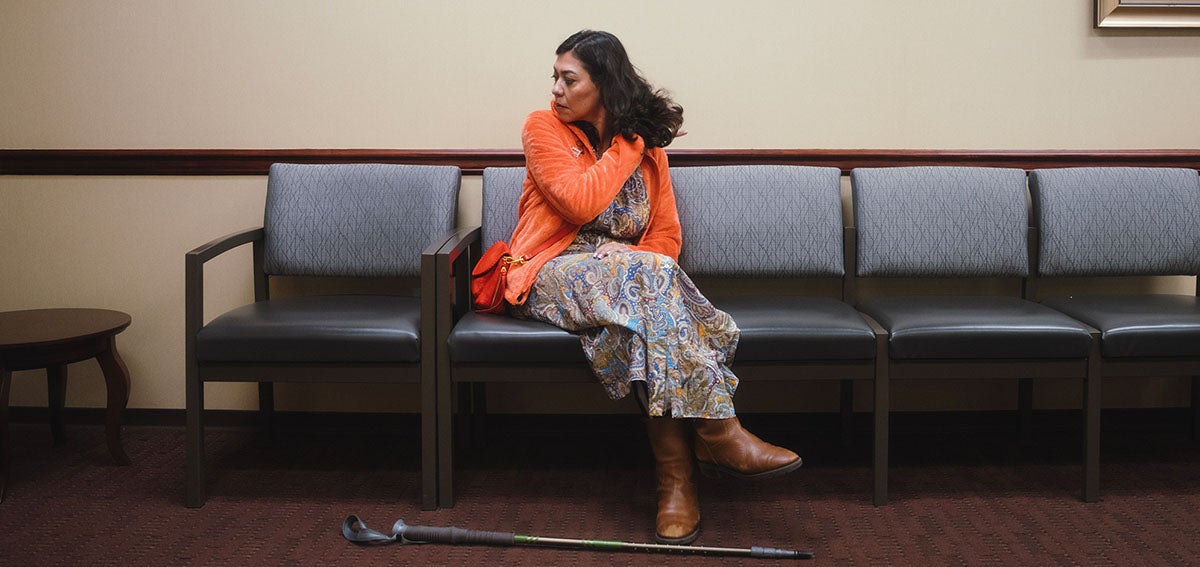

When news broke of Justice Ruth Bader Ginsburg’s death on September 18, the outpouring of grief and gratitude for the accomplishments of the feminist icon was quickly followed by speculation over how her passing will affect the legal challenge to the Affordable Care Act (ACA) now before the US Supreme Court.
The landmark health law survived high court rulings in 2012 and again in 2015. In each case, Chief Justice John Roberts voted with the court’s liberal bloc, including Ginsburg, to uphold the ACA. President Donald Trump has nominated conservative Judge Amy Coney Barrett of the Seventh Circuit of the US Court of Appeals to fill Ginsburg’s seat. Because oral arguments for California v. Texas are set for one week after Election Day, supporters of the law are uneasy.
“If the suit had a trivial chance of success yesterday, it has a new lease on life,” University of Michigan law professor Nicholas Bagley told Amy Goldstein in the Washington Post after learning of Ginsburg’s death. “The ACA has become part of the basic plumbing of the US health care system. Ripping it out at this point would create enormous problems.”
If the ACA is overturned, the consequences could be severe. At this point, the nation remains mired in the coronavirus pandemic, which has metastasized into one of the greatest public health crises in a century. Last week, the US reached the horrific milestones of more than 7 million people infected and 200,000 dead from COVID-19. ACA protections for people with preexisting conditions would disappear if the health law is struck down, and more than 12 million adults who have gained health coverage through the ACA’s Medicaid expansion could lose it. More than 9 million others would lose access to subsidized premiums for private health insurance.
Still, the worst-case scenario is just one of many. Here is a review of the lawsuit, what’s at stake, and the potential outcomes.
Implications of Eliminating the Individual Mandate
California v. Texas originated from a consortium of Republican state attorneys general led by Texas. A California-led coalition of 20 states and Washington, DC, is defending the ACA. The Texas coalition argues that the ACA is unconstitutional in its entirety because Congress in 2017 zeroed out one provision of the lengthy law, the individual mandate. If that part of the ACA is invalid, they argue, then the rest is too.
Many legal experts find this position unpersuasive. The arguments “have been roundly criticized by conservative legal scholars, the Wall Street Journal editorial board, the National Review editorial board, health care stakeholders, and some Republican members of Congress and state officials,” ACA expert Katie Keith, JD, MPH, wrote on the Health Affairs Blog. The Supreme Court is scheduled to hear oral arguments in the case on November 10, one week after the election.
Threats to the Vulnerable
Thanks to the 10-year-old ACA, millions of Americans have gained health coverage. This has proved to be essential during the global pandemic. But if the health law is struck down, about 21 million people who buy health insurance through the ACA exchanges or who gained coverage through Medicaid expansion would be at serious risk of becoming uninsured.
California enthusiastically leaned into the ACA from the start and saw the biggest decline in uninsured residents — 3.7 million — of any state. As the California uninsured rate fell, racial disparities in coverage were also reduced. By 2016, the ACA had produced historic declines in racial disparities in health coverage rates for Californians. (Learn more about the impact of the ACA in California with this collection of resources.)
Nationwide, nearly 133 million people with preexisting conditions could be denied coverage or be required to pay more for a health insurance policy if the ACA is eliminated. “Contracting the [coronavirus] is the ultimate preexisting condition,” Andy Slavitt, former administrator of the Centers for Medicare & Medicaid Services under President Barack Obama, and Bagley wrote in the New York Times. “The disease can bring with it mysterious complications and affect virtually every organ system, the immune system, and even the limbs. Young, otherwise healthy people may find themselves uninsurable if the Affordable Care Act is struck down.”
“A lawsuit that once seemed like a long shot now has a much more reasonable chance at success — and that means 20 million people’s health coverage really could be in the balance.”
—Sam Baker, Axios
Also at risk are essential health benefits that the ACA requires all health plans to cover, including maternity care, mental health services, and substance use disorder treatment. If the law is overturned, they could disappear from insurance plans.
“Other popular provisions hang in the balance, including those that guarantee preventive care with no out-of-pocket payments; end lifetime caps; allow kids to stay on their parents’ insurance through age 26; and make vaccines free to patients. Even some key improvements to Medicare — including a reduction in prescription drug costs for beneficiaries — would be gone,” Slavitt and Bagley wrote.
The ACA’s impacts reach far beyond health care consumers. “Insurance companies, drug companies, hospitals, and doctors have all changed the way they do business because of incentives and penalties in the health law,” Julie Rovner wrote in Kaiser Health News. “If it’s struck down, many of the ‘rules of the road’ would literally be wiped away, including billing and payment mechanisms.”
Supreme Court Scenarios
If the Republican Senate votes to confirm Barrett before the oral arguments for California v. Texas, the ACA faces a tougher battle, though it could be narrowly upheld. Although Barrett has not participated in any cases regarding the ACA on the Seventh Circuit, “her academic writing and public action offer glimpses into her views” opposing the health law, Goldstein and Alice Crites reported in the Washington Post.
If Barrett misses the oral arguments, she will not participate in the case. The Supreme Court could choose to postpone the arguments or proceed with eight justices, which is “far from unprecedented,” Keith wrote. Should that result in a 4-4 ruling, the lower court’s decision would stand, and the case would be remanded to a federal district court judge to decide which other provisions of the law must fall along with the individual mandate. Other provisions on the chopping block “could include the law’s rules banning insurers from denying people coverage or charging them higher premiums because of their medical history,” Dylan Scott wrote in Vox. Litigation could continue for years, during which the ACA would remain the law of the land, according to Keith.
This is not an exhaustive list of potential outcomes. For example, an eight-judge court could narrowly rule in favor of the ACA.
As Sam Baker wrote in Axios, “A lawsuit that once seemed like a long shot now has a much more reasonable chance at success — and that means 20 million people’s health coverage really could be in the balance.”
What are you reading about the potential impacts of the Supreme Court vacancy on health care? Email me.
Authors & Contributors





